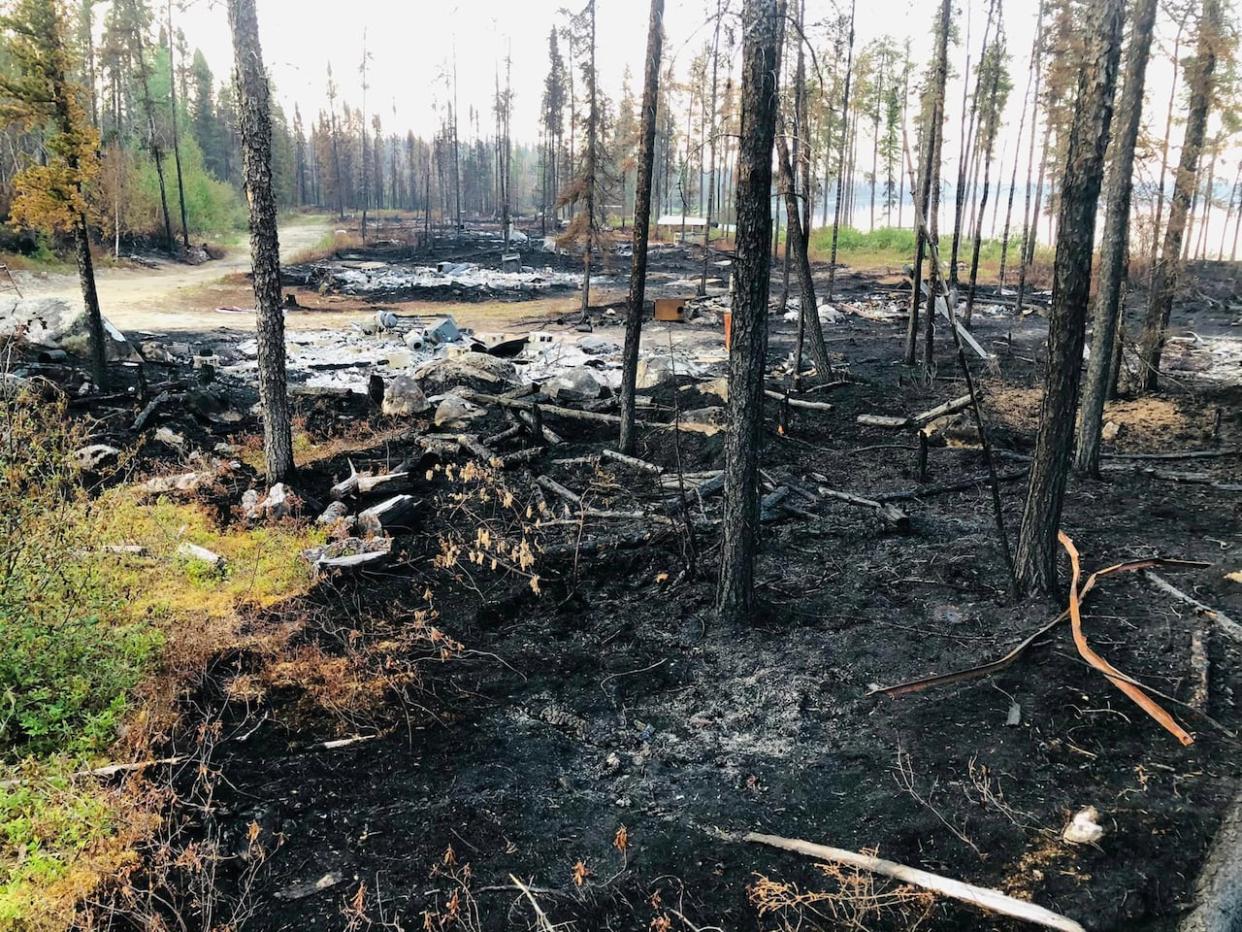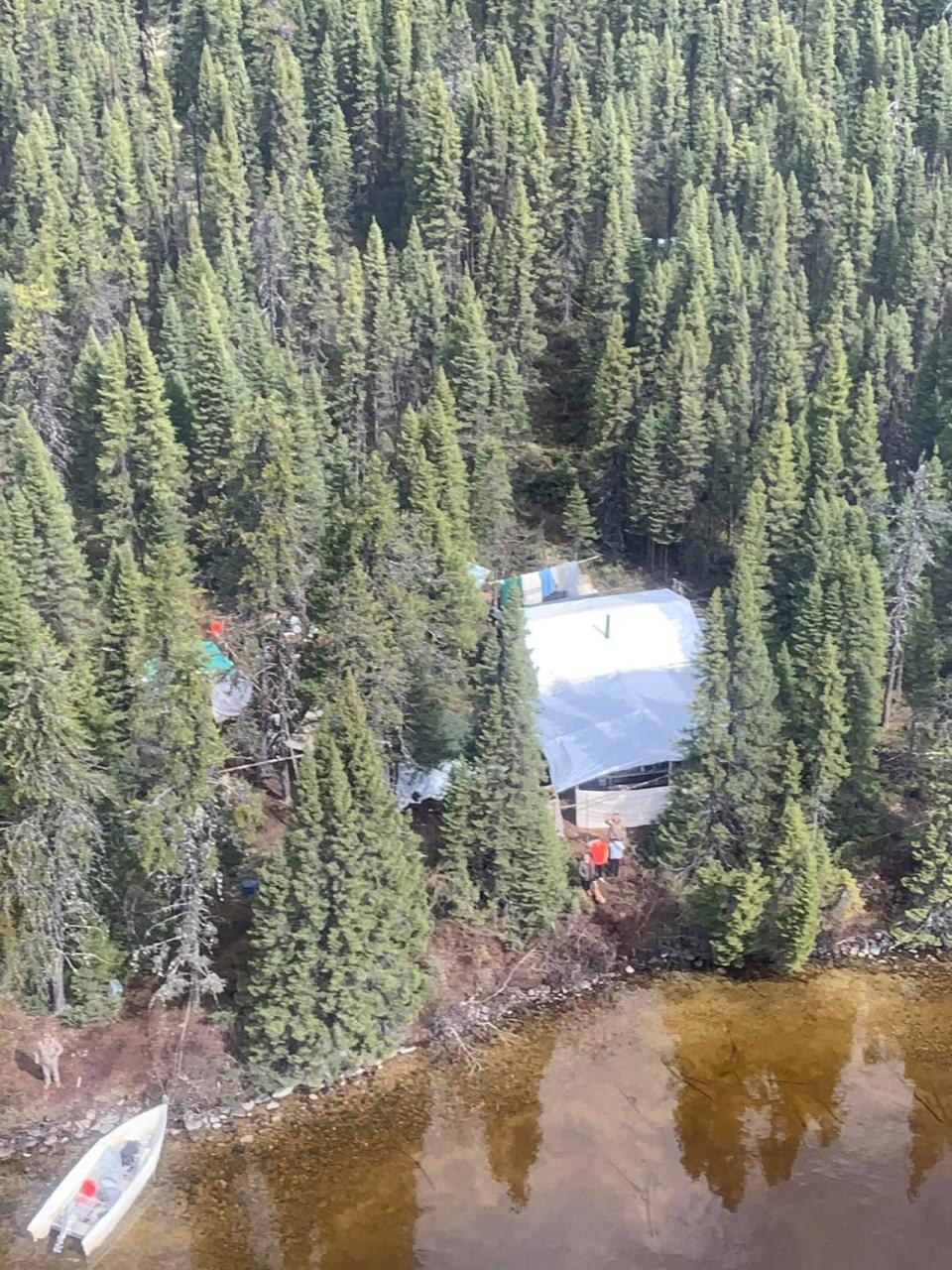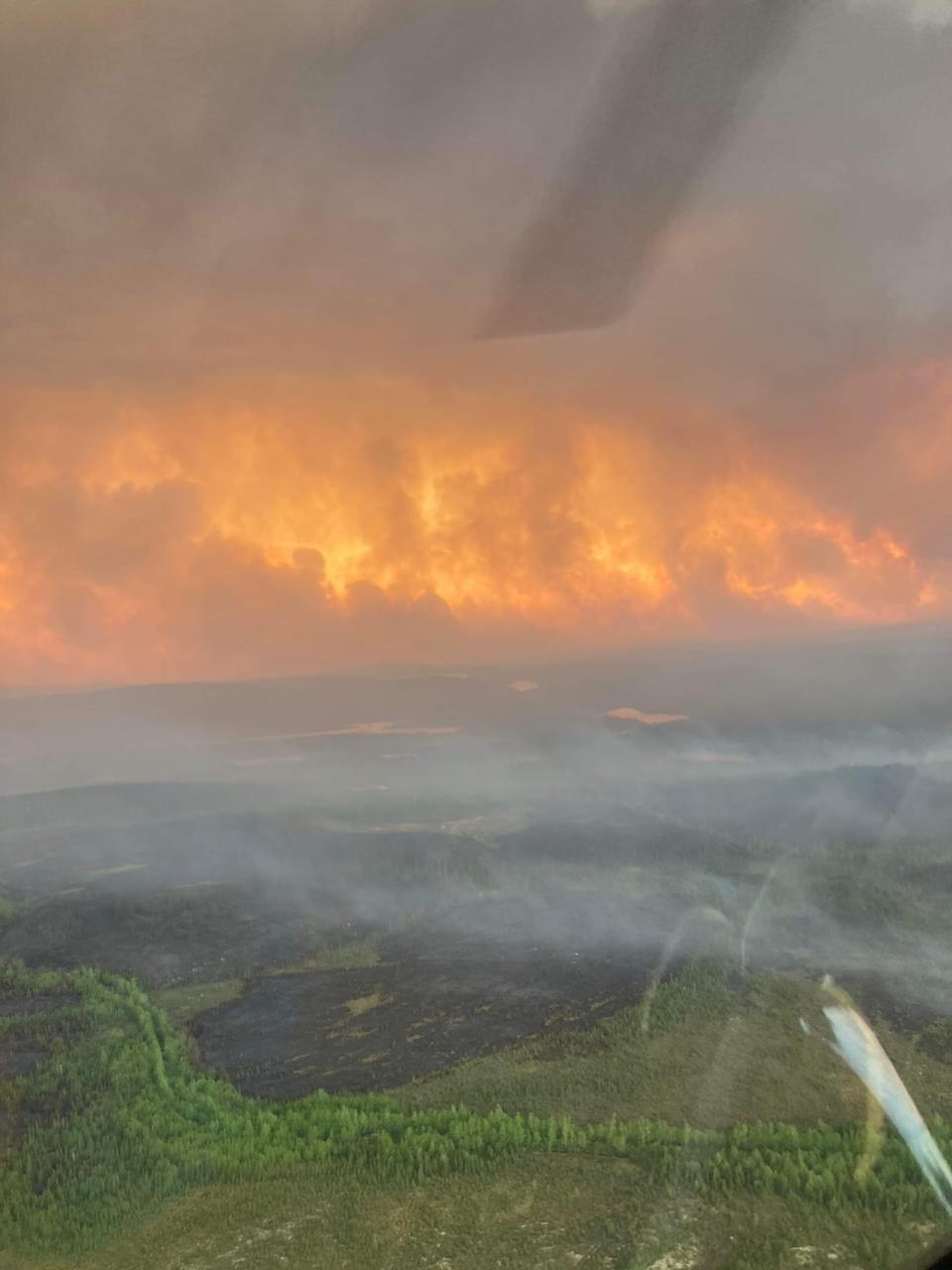Wildfires and climate change are shifting the way some Quebec Cree hunt

Some Cree families in Quebec say forest fires and climate change are shifting the way they hunt geese, after fires destroyed their spring cabins last year.
Climate change and last year's wildfires had a wide impact on Cree traditional territory. Out of 400,000 square kilometres, 12 per cent of the boreal forest was burned from the fires, according to the Cree Nation Goverment's environment department.
About 150 hunting cabins were burned to the ground too. Kenneth Tanoush from Nemaska lost his campsite from the flames. The cabin was passed down from his late grandfather.
"We lost our Ski-Doo, boats, and canoes. All things useful for our hunts were lost ... We loved it there. That's where my daughter shot her first goose," said Tanoush.
Tanoush usually takes his family there for Goose Break every year

A photo of Kenneth Tanoush's cabin, which was burned by fire last summer. (Submitted by Kenneth Tanoush)
"It is sad that my children won't be able to see it and we've been here for years," said Tanoush.
Rebuilding
But all that is lost can be rebuilt. The Cree Trappers' Association will help cover half the cost of rebuilding cabins burned in last year's fires. But this time, cabins will be built to be more fire-resistant.
"We're all going to build them with metal roofs. If it's going to burn again, at least it's going to help so it doesn't catch on fire," said Thomas Stevens, the special projects co-ordinator of the Cree Trappers' Association.
A lot of families are traveling to southern Ontario or to farmland alongside the Highway 401, according to Stevens.
Climate change is also changing the way families travel to their spring camps. Since there was not a lot of snow for some this year, families took to other means.
"People that usually travel by Ski-Doo were not able to go to their camps, they will have to fly by helicopter or by plane," said Stevens.

An aerial shot of charred forest and intense flames near Lac Mistassini in the summer of 2023. (Radio Canada)
The Cree Trappers' Association will also build the cabins to have two exit doors so people can vacate the cabin more safely in case there is a fire.
"We're expecting more forest fires this summer, so we're encouraging people to take their cabin insurance," said Stevens.
Stevens said the sooner people purchase cabin insurance the better. Cabin insurance prices drastically went up since last year's forest fires, he said.
"The year before the forest fires, like last year, it cost $745 for the whole year, but it went up to $1,145," said Stevens.
Cree Trappers' Association aims to help rebuild as much of what people lost. For the next three years, it aims to help build 50 cabins each summer to recoup the approximately 150 that were burned.
It will also help cover 50 per cent of the cost of the annual insurance program, so families only need to pay $575.
Stevens wants families to know that Goose Break traditions are not always tied to a physical shelter.
"Our ancestors, our grandfathers always went out without a cabin. They would build their shed or their tent frame.Our people did it a long time ago," said Stevens.
Stevens also said that Cree people used to be very nomadic hunters and that it's also important to practice old traditions.
"There's still possible ways of being out in the land without a cabin. We've done that for many thousand years. We've always survived the same way our elders, our past generations have done," said Stevens.


